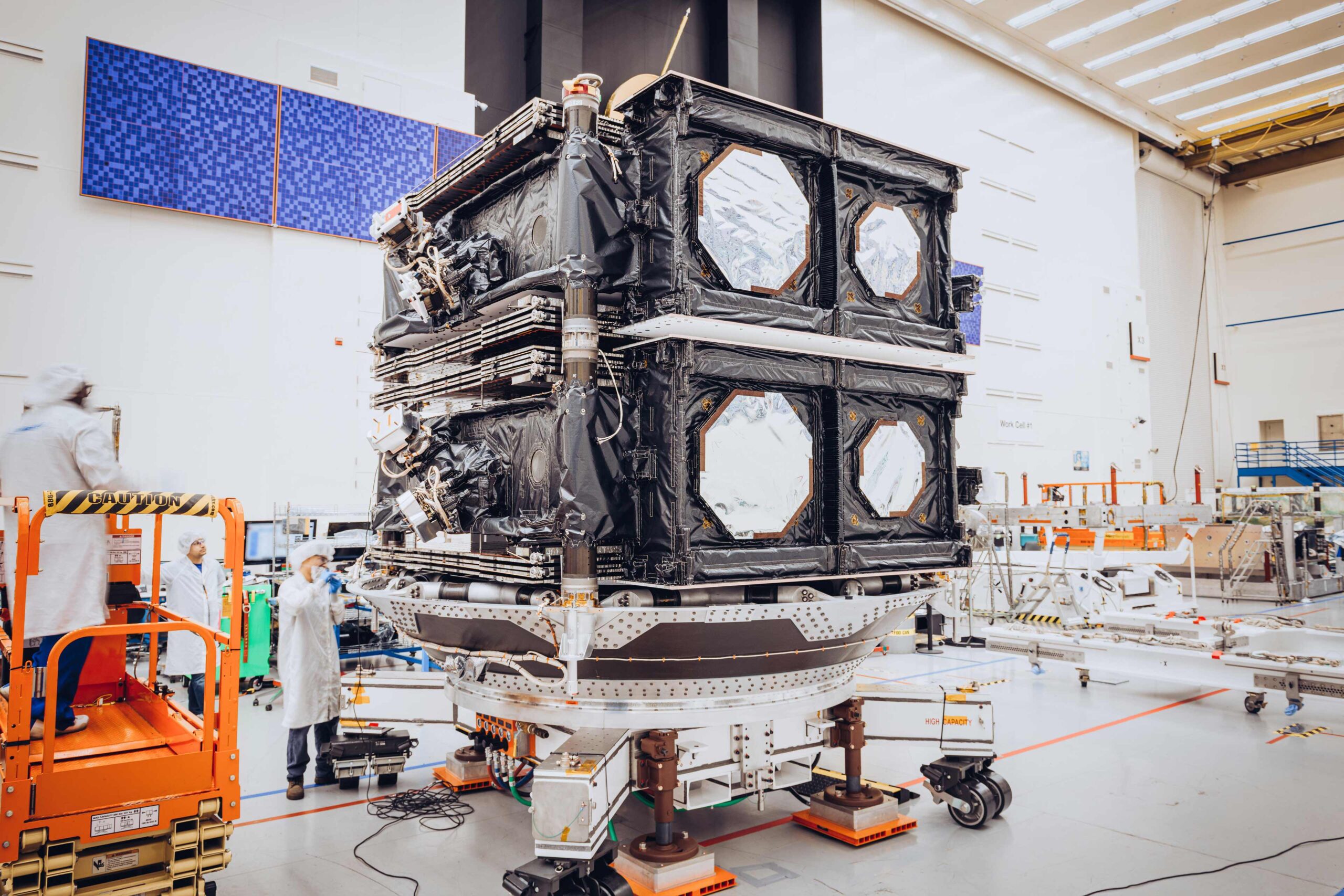TAMPA, Fla. — SES needs to conduct extra tests before launching its next pair of O3b mPower satellites, the operator said Aug. 3, to investigate a glitch that is sporadically tripping off power modules on its first four in medium Earth orbit.
Newly appointed CEO Ruy Pinto said the issue is limited to some of the power modules onboard the four next-generation MEO satellites SpaceX launched two at a time in December and April.
Pinto said all trip-offs were quickly resolved in a process he likened to flipping a circuit breaker, without impacting payload performance.
“We’re not overly concerned,” he said during the company’s earnings call, “but we want to make sure that we have no … hiccups when we deploy these services.”
The upcoming fifth and sixth O3b mPower satellites, part of 11 Boeing is building for the operator, were slated to launch on a SpaceX Falcon 9 by the end of June, but are now targeting a launch before the end of September.
SpaceX is also slated to launch the seventh and eighth O3b mPower satellites this year.
The first two O3b mPower satellites have reached their final positions in MEO, Pinto said, and the third and fourth are due to arrive at their target locations later this month.
Only six O3b mPower satellites are needed for initial commercial services, which Pinto said remain on track to start before the end of 2023.
The services aim to address growing demand for connectivity across markets including mobile backhaul, aviation, maritime, and government.
Each satellite is designed to scale to multiple gigabits per second of throughput — around 10 times more than the operator’s first generation of 20 O3b satellites in MEO.
SES also operates around 50 satellites in geostationary orbit for connectivity and broadcast customers.
The company reported 987 million euros ($1.1 billion) in total revenues for the first half of 2023, down 1.2% year-on-year when adjusted for currency changes on a like-for-like basis.
Revenue from the company’s networks business climbed 3.1% over the period to 501 million euros.
However, video revenues that fell 5.2% to 486 million euros dragged the business down.
SES and other satellite operators, including Eutelsat of France, are heavily investing in connectivity services amid a gradual decline in satellite TV.
SES also announced it has successfully cleared a swathe of C-band spectrum that the Federal Communications Commission auctioned off to 5G telcos in the United States.
The Luxembourg-based company expects to receive $3 billion (pre-tax) from the FCC by the end of 2023 for beating its Dec. 5 clearing deadline, on top of the $1 billion already secured for hitting an interim 2021 milestone.
Pinto said during the company’s earnings call that a legal battle to equally split C-band proceeds with Intelsat, which is currently in line for nearly $5 billion in total FCC proceeds, is ongoing.
He declined to specify how the operator planned to use its multibillion-dollar C-band windfall, but said options include paying down debt, shareholder dividends, and growth-orientated investments.
